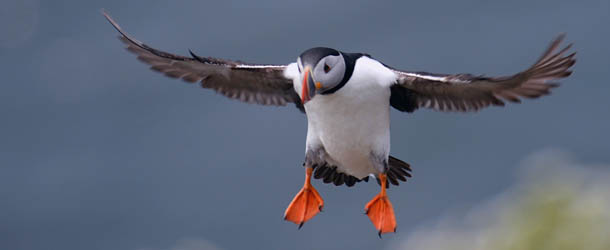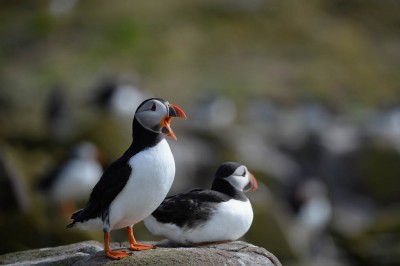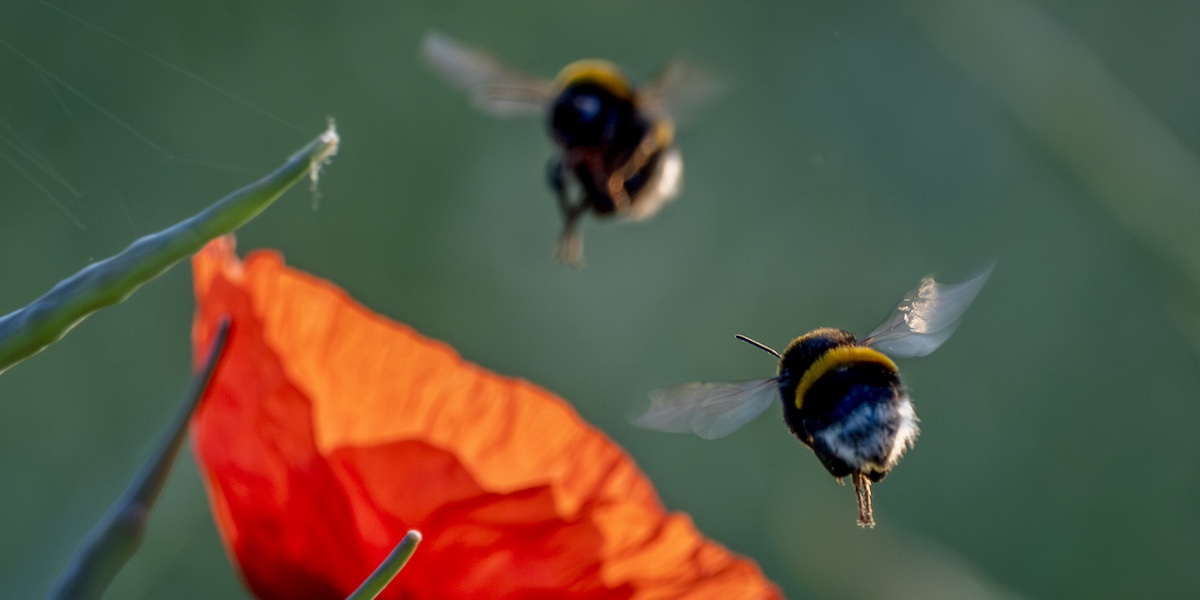Il censimento delle fratercule
Ogni estate volano sulle Isole Farne per riprodursi, ed è una delle poche occasioni per vederli (sono meravigliosi ma molto timidi)

altre
foto
Giovedì 16 maggio, come ogni cinque anni in questo periodo, è iniziato il censimento delle pulcinelle di mare (o fratercule), che ogni estate migrano verso le Isole Farne per riprodursi. Le Farne sono un arcipelago di piccole isole nel tratto di costa inglese fra Newcastle e Edimburgo, e le fratercule volano qui per la grande quantità di cibo disponibile e la quasi totale assenza di predatori. Il censimento è un’occasione molto attesa dagli abitanti del luogo, poichè di norma questi uccelli sono molto timidi. Nelle foto si vedono anche alcuni ranger mentre tirano fuori le fratercule dalle tane per contarle; questi uccelli scavano infatti delle gallerie lunghe fino a due metri dove poi depongono le uova. L’ultimo censimento del 2008 ha registrato 36.500 coppie di fratercule, ma i ranger stimano che il loro numero potrebbe essere diminuito a causa dell’inverno molto rigido di quest’anno.
























